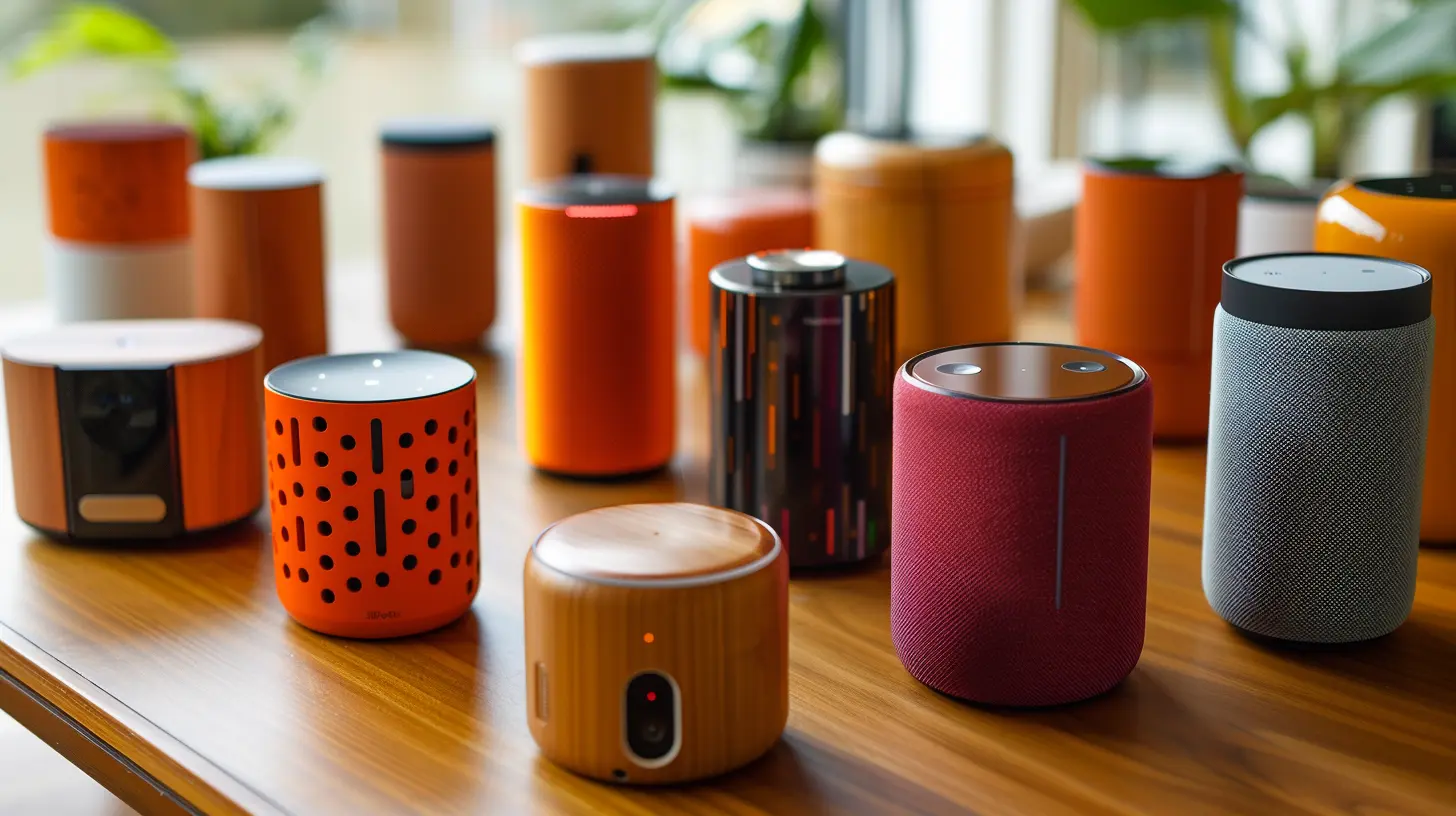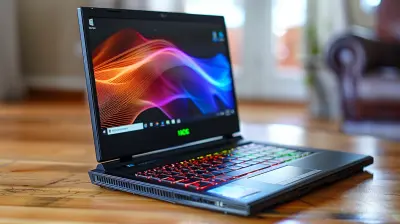Why Bluetooth is the Key to Hands-Free Voice Assistants
4 May 2025
Voice assistants have become an essential part of our daily lives. Whether you're asking Alexa for the weather update, telling Siri to set a reminder, or using Google Assistant to control your smart home, voice technology is everywhere. But have you ever thought about what makes them truly hands-free?
The answer lies in Bluetooth technology. Yes, that tiny wireless connection you rely on for headphones and speakers is at the heart of hands-free voice assistants. Without Bluetooth, our beloved virtual assistants wouldn't be as seamless, portable, or accessible.
In this article, we'll dive into why Bluetooth plays a crucial role in hands-free voice assistants, how it enhances user experience, and why it continues to be an indispensable technology in the AI-driven world.

The Rise of Hands-Free Voice Assistants
Before we get into Bluetooth’s role, let's look at how voice assistants have grown. From basic commands like setting alarms to controlling smart homes and making online purchases, they've come a long way.But here’s the catch: to be truly hands-free, voice assistants need a reliable way to connect to devices without wires. That’s where Bluetooth steps in.
Imagine if you had to physically tap your phone or speaker every time you wanted to interact with a voice assistant. That would defeat the purpose of having one! Bluetooth enables users to activate voice commands remotely, making interactions fluid and effortless.

How Bluetooth Powers Hands-Free Voice Assistants
1. Wireless Connectivity at Its Best
Bluetooth eliminates the need for physical connections, allowing voice assistants to stay linked to smart devices seamlessly. Whether it's a Bluetooth headset, a smart speaker, or a car's infotainment system, the assistant can respond to your voice commands instantly.2. Increased Mobility and Convenience
One of Bluetooth’s biggest advantages is mobility. Since there's no need for cables, you can activate voice assistants from anywhere within range. This is perfect for people who are on the go—like drivers who want hands-free control over navigation, calls, and music.3. Improved Audio Transmission for Better Voice Recognition
A voice assistant is only as good as its ability to understand what you’re saying. Bluetooth's high-quality audio transmission ensures clear voice recognition, reducing misunderstandings and the need for repeated commands.For example, when using Bluetooth earbuds with built-in microphones, the assistant hears you clearly without unnecessary background noise. This makes interactions smoother and more precise.
4. Reduced Battery Consumption Compared to Wi-Fi
While Wi-Fi also enables wireless voice assistant functionality, it drains battery life much faster than Bluetooth. That’s why many hands-free devices rely on Bluetooth instead—it consumes less power while maintaining reliable connectivity.This is especially important for wearable tech, like smartwatches and wireless earbuds, where battery life is a priority. With Bluetooth, devices can stay connected to voice assistants without frequent charging.
5. Seamless Integration with Smart Homes and Cars
Smart homes and connected cars rely heavily on Bluetooth technology.- In smart homes, Bluetooth-enabled voice assistants connect effortlessly with smart locks, lights, thermostats, and speakers, allowing users to control their home environments using just their voice.
- In cars, Bluetooth enables voice-controlled navigation, hands-free calling, and music streaming, making driving safer by reducing distractions.
6. Low Latency for Instant Responses
Nobody likes a lagging assistant. With low latency, Bluetooth ensures that when you issue a voice command, you get an instant response. This is particularly important for real-time tasks, like asking for driving directions or controlling IoT devices.
Why Bluetooth Remains a Top Choice
It's no surprise that Bluetooth is still the go-to wireless technology for hands-free interactions.1. Widespread Compatibility
Almost every modern smartphone, tablet, and smart speaker supports Bluetooth. This universal compatibility makes it easy for voice assistants to pair with multiple devices without requiring extra hardware.2. Cost-Effective Connectivity
Unlike Wi-Fi, which requires internet infrastructure, Bluetooth operates on short-range radio waves—no extra costs involved. That’s why manufacturers prefer it for wearables, headphones, and IoT devices.3. Advanced Features with Bluetooth LE (Low Energy)
The introduction of Bluetooth Low Energy (BLE) has made power consumption even more efficient. BLE allows devices to stay connected for longer periods without excessive battery drainage, perfect for always-on voice assistants.
The Future of Bluetooth-Powered Voice Assistants
Bluetooth technology continues to evolve, and its impact on voice assistants will grow even further. Here’s a glimpse of what’s coming next:1. Enhanced AI-Powered Voice Recognition
Future improvements in Bluetooth microphones will lead to even sharper voice recognition. AI-driven noise cancellation and beamforming technology (which focuses on the speaker’s voice) will make voice assistants more precise and responsive.2. Expansion into Wearable AI
The rise of smart glasses, AI-powered earbuds, and other wearables will push Bluetooth further into the world of voice assistants. Hands-free interactions will become even more seamless, integrating voice technology into daily life like never before.3. Improved Security and Encryption
As Bluetooth becomes more embedded in personal and smart devices, enhanced security protocols will be a priority. Future versions of Bluetooth will focus on protecting voice data from cyber threats and unauthorized access.4. Integration with 5G and Edge Computing
With 5G networks and edge computing, voice assistants will process commands faster than ever before. Bluetooth will act as the bridge between smart devices and high-speed networks, ensuring instant responses and real-time smart home automation.Conclusion
Bluetooth is the unsung hero behind hands-free voice assistants. Without it, interacting with Siri, Alexa, or Google Assistant wouldn’t be as effortless as it is today. Bluetooth provides wireless connectivity, mobility, low power consumption, and enhanced voice recognition, making it a perfect fit for hands-free applications.As technology advances, Bluetooth’s role in voice assistants will only grow stronger—powering smart homes, cars, wearables, and more. So, next time you activate your voice assistant without lifting a finger, remember: Bluetooth is making it happen.
all images in this post were generated using AI tools
Category:
Bluetooth DevicesAuthor:

Reese McQuillan
Discussion
rate this article
7 comments
Ava Evans
Bluetooth, the whispering bridge, unlocks a world—where voices dance unbound, guiding us hands-free through the symphony of life.
May 14, 2025 at 3:52 AM

Reese McQuillan
Thank you! Bluetooth truly transforms our interactions, allowing seamless connectivity and hands-free convenience in our daily lives.
Elijah McCune
Bluetooth: because yelling at your devices is so last decade!
May 13, 2025 at 5:02 AM

Reese McQuillan
Absolutely! Bluetooth makes interacting with devices seamless and hassle-free, embracing a more efficient way to communicate.
Seth Forbes
Bluetooth technology revolutionizes hands-free voice assistants by enabling seamless connectivity and interaction. It empowers users to engage with devices effortlessly, enhancing convenience and safety. As we embrace a more connected world, Bluetooth remains a vital link that fosters innovation and enriches our daily experiences.
May 10, 2025 at 8:29 PM

Reese McQuillan
Thank you for highlighting Bluetooth's crucial role in enhancing hands-free voice assistants! Its seamless connectivity truly transforms user interaction and convenience.
Quincy Sullivan
Great insights! Bluetooth truly enhances convenience and accessibility for voice assistants. Keep up the good work!
May 10, 2025 at 11:56 AM

Reese McQuillan
Thank you! I'm glad you found the insights valuable. Bluetooth really does revolutionize the way we interact with voice assistants!
Kassandra Mendez
Bluetooth technology revolutionizes hands-free voice assistants by enabling seamless connectivity between devices. Its low power consumption and reliable range enhance user experience, making interactions smoother and more intuitive. As smart homes grow, Bluetooth’s role in facilitating effortless communication with voice assistants becomes increasingly vital for tech-savvy consumers.
May 9, 2025 at 4:50 AM

Reese McQuillan
Thank you for highlighting Bluetooth's pivotal role in enhancing hands-free voice assistants. Its seamless connectivity and low power consumption indeed make it essential for the evolving smart home landscape.
Vanessa Bowers
Great insights! Bluetooth really does make hands-free voice assistants so much easier and accessible. Can’t imagine life without it now!
May 8, 2025 at 2:58 AM

Reese McQuillan
Thank you! I’m glad you found the insights valuable. Bluetooth truly has transformed our interaction with voice assistants!
Simone Riley
Great article! It’s amazing how Bluetooth has transformed our daily lives, making voice assistants so accessible. I can’t imagine cooking or driving without my hands-free helper. The convenience is unmatched, and it really does feel like we’re living in the future. Can’t wait to see where this technology goes next!
May 6, 2025 at 7:01 PM

Reese McQuillan
Thank you for your feedback! I completely agree—Bluetooth has truly revolutionized our daily routines, and it's exciting to imagine the future possibilities!
MORE POSTS

How to Ensure Data Security When Using SaaS Platforms

Understanding Smartphone Storage: How Much Do You Really Need?

The Role of IoT in the Evolution of Digital Workspaces

The Best Laptops for Multitasking: Speed, Storage, and Stability

How AI is Revolutionizing Video Editing Tools

Blockchain's Role in Driving Future Decentralized Economies